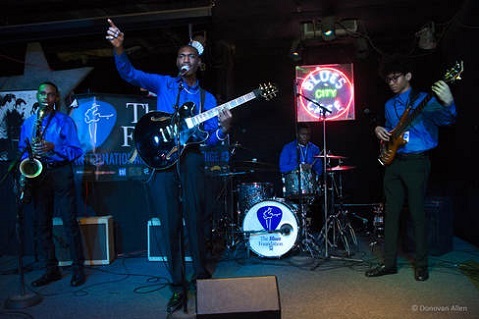Music is a universal thread that weaves through the دانلود موزیک رپ tapestry of human experience. It transcends language barriers, cultural divides, and geographical boundaries, serving as a timeless form of expression and communication. From ancient tribal rhythms to the pulsating beats of modern electronic dance music, the evolution of music mirrors the growth of human civilization, reflecting our emotions, values, and aspirations.
The Roots of Rhythm: A Historical Perspective
The story of music begins in prehistory, with early humans using rudimentary instruments like bone flutes and animal hide drums to accompany rituals, celebrations, and storytelling. These early melodies were not just entertainment; they were tools for survival, uniting communities and conveying important cultural narratives.
As societies developed, so did the complexity of their music. Ancient civilizations like the Egyptians, Greeks, and Mesopotamians created intricate systems of musical notation and theory, laying the groundwork for the symphonies and compositions we celebrate today. The Gregorian chants of medieval Europe and the ragas of classical Indian music exemplify how music evolved to embody spiritual and emotional depth.
Music as a Mirror of Culture
Every culture has its unique musical fingerprint. African rhythms emphasize communal participation and improvisation, often featuring polyrhythmic structures that celebrate life’s dynamism. In contrast, European classical music reflects centuries of refinement, with its focus on harmony, structure, and technical prowess.
Modern genres such as jazz, reggae, hip-hop, and K-pop continue this tradition of cultural storytelling. Jazz, born from the African-American experience, combines freedom and discipline, symbolizing resilience and innovation. Hip-hop, with its roots in the Bronx, serves as a voice for marginalized communities, blending rhythm and poetry to tackle social and political issues.
The Science Behind the Sound
Music’s power lies not only in its artistic beauty but also in its profound impact on the human brain. Neuroscience reveals that listening to or playing music activates multiple areas of the brain, including those responsible for memory, emotion, and motor skills. The release of dopamine, the “feel-good” neurotransmitter, explains why a favorite song can instantly lift your mood.
Music therapy harnesses this scientific insight to improve mental health, reduce stress, and aid in physical rehabilitation. From calming melodies that help patients manage anxiety to rhythmic exercises that assist stroke survivors in regaining motor functions, music’s healing properties are undeniable.
The Digital Revolution and Music’s Future
In the 21st century, technology has democratized music creation and distribution. Platforms like Spotify and YouTube have made music accessible to billions, while digital tools empower artists to produce tracks from their bedrooms. Artificial intelligence is now venturing into music composition, with algorithms capable of generating symphonies and pop hits alike.
However, this digital transformation raises questions about authenticity and artistry. As algorithms predict trends and churn out formulaic hits, the human element—the heart and soul of music—risks being overshadowed. Balancing innovation with tradition will be key to preserving music’s essence in the digital age.
Why Music Matters
Music is more than entertainment; it is a conduit for connection. It bridges generational gaps, bringing grandparents and grandchildren together through shared melodies. It amplifies social movements, as seen in the anthems of the civil rights era or the protest songs of the 1960s. It transforms solitude into serenity, offering comfort in times of loss and joy in moments of celebration.
In a world often marked by division, music reminds us of our shared humanity. Whether it’s the soulful strum of a guitar, the haunting wail of a violin, or the euphoric drop of an EDM track, music speaks a language we all understand. It is, and always will be, the universal soundtrack to the human experience.
Conclusion
Music is more than just sound—it is an art form, a science, and a spiritual journey. It holds the power to evoke emotion, inspire change, and unite people across boundaries. As technology and creativity continue to shape its future, music will remain an enduring symbol of what it means to be human.

